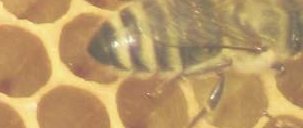
The history of honey and beekeeping
Beekeeping and honey goes back thousands of years, and has played an important role in many cultures around the world.
Early History of Beekeeping and Honey
The earliest evidence of humans collecting honey comes from rock paintings in Spain dating back to 7000 BCE, which depict people gathering honey from wild bees. The ancient Egyptians were also known to keep bees in hives made of clay and straw, and they used honey as a sweetener, as well as for medicinal and religious purposes. They learned that honey is the only food which never spoils! Honey from Eqyptian times has been unearthed, which is still edible!
In ancient Greece, honey was highly valued and considered a gift from the gods. The famous philosopher Aristotle even wrote about the behavior of bees and their role in the ecosystem. The Romans were also skilled beekeepers and developed various methods for managing bees and producing honey.
Medieval and Renaissance Beekeeping
During the Middle Ages, beekeeping was mostly practiced by monks, who kept bees in hives made of straw or wicker. In the 16th century, the first movable frame hive was developed in Europe, which allowed beekeepers to inspect the bees and harvest honey without destroying the hive.
In the 18th century, beekeeping became more widespread in Europe and North America, as people began to recognize the importance of honeybees for pollination and honey production. Beekeeping also became a popular hobby among the wealthy, who would keep bees in ornate hives made of glass or porcelain.
Modern Beekeeping
The 19th century saw significant advances in beekeeping, thanks in large part to the work of Lorenzo Lorraine Langstroth, who invented the modern movable frame hive. This innovation made it much easier for beekeepers to manage their hives and harvest honey, and it is still the most commonly used hive design today.
Today, beekeeping is practiced all over the world, and honey is one of the most popular sweeteners in the world. Honey is used in cooking, baking, and as a natural remedy for various health conditions. It is also used in cosmetics and skin care products, as it has moisturizing and antibacterial properties.
However, in recent years, honeybees have faced a number of challenges, including habitat loss, pesticides, and disease. This has led to a decline in bee populations and concerns about the impact on agriculture and ecosystems. As a result, there is now a growing movement to protect bees and promote sustainable beekeeping practices.
Beekeeping and honey have a rich and varied history that spans thousands of years and many different cultures. From the ancient Egyptians to modern-day beekeepers, people have recognized the importance of bees and the many benefits of honey. Today, as we face new challenges and concerns about the environment and sustainability, the history of beekeeping and honey provides us with valuable lessons and insights for the future.
Related information
- A Beekeeper's Hive Explained
- Who's Who in the Hive - Bees Lifecycle
- The history of honey and beekeeping
- Lifecycle of the honeybee
- Hive Collapse Syndrome
- Is it a honeybee or a yellowjacket?
- Killer Africanized bees what and where are they?